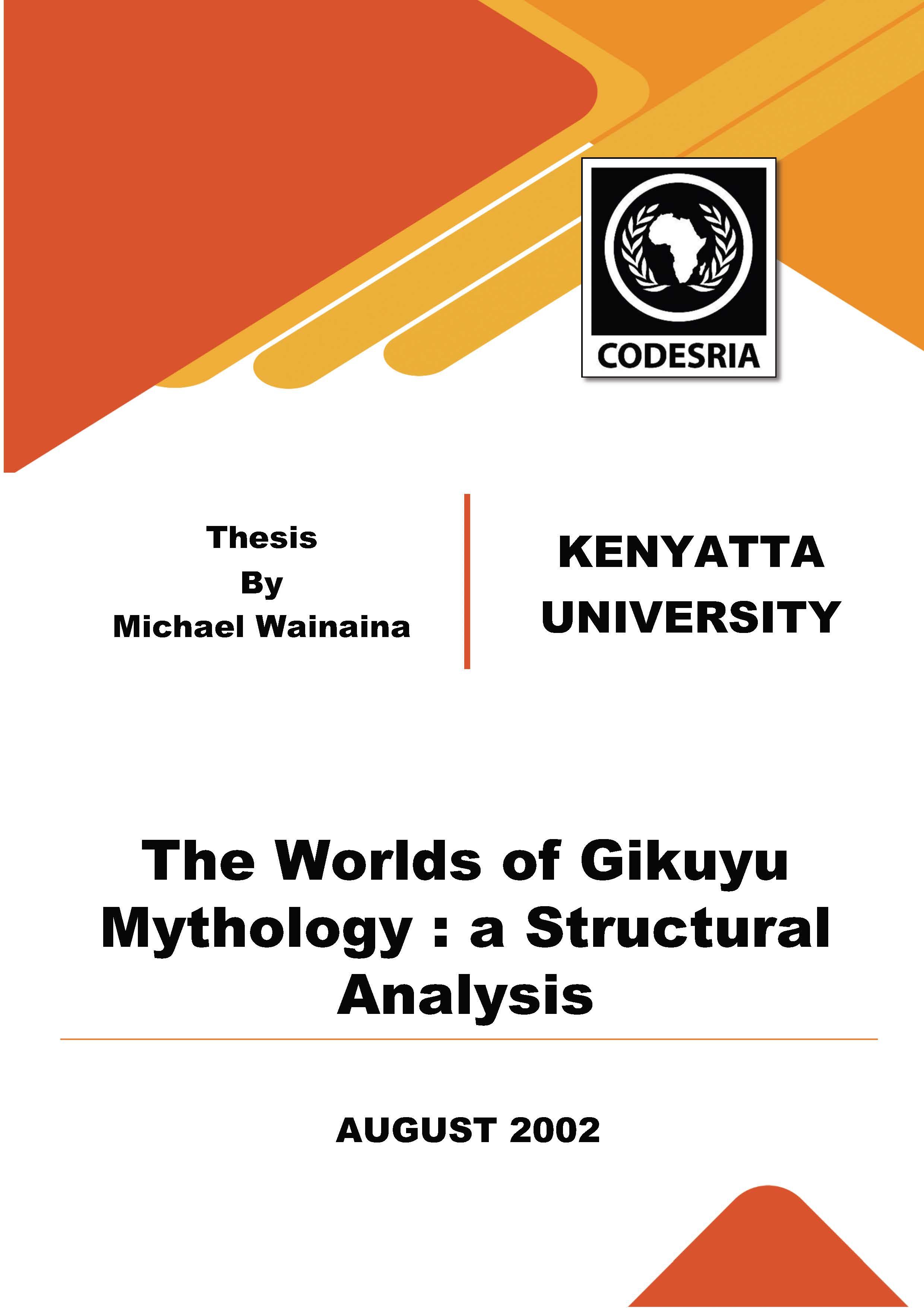The Worlds of Gikuyu Mythology : a Structural Analysis
Keywords:
Worlds, Gikuyu MythologySynopsis
This study addresses the methodological and definitional shortcomings in mythological analysis. Divesting the typological definition of "myth"; that sees myth as one type. of story as opposed to another, we define myth as any tale in the Gikuyu community. ln addition to this, we adopt a methodology that seeks not only the structural unity of Gikuyu mythology but also recognises the potential for signification of delineated mythological structures. We proceed from the postulate. that myth is like language whose various constituent elements, (phonemes) combine to make meaning. Corresponding elements in mythology are called mythemes. Taking the worlds of Gikuyu Mythology as the mythology's mythemes, we in the study test the hypothesis that the structural model of the transformationai· relationships of the wbrlds of Gikuyu mythology is related to Gikuyu society and culture and it thus provides a basis for analysis of the mythology.
Using a corpus of twenty purposefully sampled myths, we proceed to identify the worlds of Gikuyu mythology. We have then constructed a structural model showing how these worlds relate. Through the transformational relationships of these worlds we have discovered that Gikuyu mythology expresses Iwo imaginative domains in Gikuyu modes of thought. These are Existential imagination, represented by a vertical axis on the structural model and the other is the Moral imagination represented by a horizontal axis. We have proceeded to relate these Iwo axes to the Gikuyu society and culture, with insights from the latter adduced from extensive and detailed ethnographie data.
The hypothesis formulated for this study has thus been sustained. With oil, our definition and method have proved productive.
Downloads
References
Abbot, S. 1976. The Reinfication of a Traditional Power Structure: Kikuyu Values Surrounding Males and Female. Nairobi: University of Nairobi.
Abrahamsons, H. 1951. The origin of death. Uppsala. Quoted in Isidore Okpewho, Myth in Africa. Cambridge University Press: Cambridge. 1983 p.42.
Adagala, K. and Kabira, W; (eds), 1985. Kenyan Oral Narratives: A Selection, Nairobi: East African Education Publishers.
Arvies, P. 1980. The Hour of Death. New York: Knopf. Beecher, J. 1944. The Kikuyu. Nairobi: C.M.S. press.
Bettleheim, B.1977. The Uses of Enchantment: The meaning and Importance of fairy tales. New York:
Vintage Books.
Blakeslee, H. 1956. Beyond the Kikuyu Curtain. Chicago: Moody Pr.
Bloom, H. 1973. The Anxiety of influence: A theory of poetry. London: Oxford University Press.
Bottingnole, S. 1984. Kikuyu Traditional Culture and Christianity: Self Examination of an African Church. Nairobi: Heineman Educational Books.






